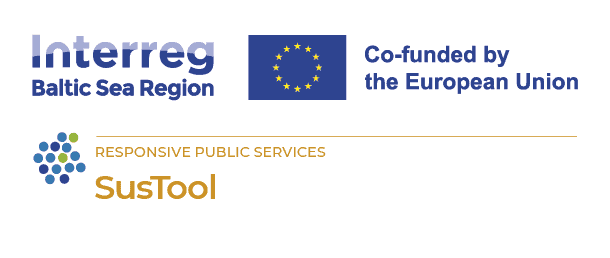
Estonian Television asks: will ESG reporting lead to real change or remain merely a formal obligation
03 February 2025
Johannes Tralla, the host of Estonian Television program “What Color is the Economy?” opens the episode about sustainability reporting with a question that makes many ponder: are we moving toward a better world, or are we sinking into a bureaucratic swamp?
We are entering a new era where companies are no longer solely focused on profit but also on taking responsibility for the planet and societal well-being. To reach this future, companies must comply with various reporting requirements that focus on environmental, social, and governance (ESG) issues. “But will these requirements lead to real change, or will they simply become an additional burden for businesses”, asks Tralla.
Estonia’s largest listed companies are now required to submit ESG reports for the first time, which involve answering nearly 1,000 questions. This obligation will expand to other large companies in the coming years. Marika Taal, an advisor at the Ministry of Finance, explains that ESG reporting is not just a formality but requires companies to assess the impact of risks and analyze their activities. “We want to know what the biggest impact of a company’s operations is,” says Taal. This means companies must clarify which sustainability topics are important to them and how they plan to address them.
Siim Kannistu, a consultant at KPMG, emphasizes that sustainability reporting has been used for years in Scandinavia and Northern Europe, but in Estonia, it is a relatively new topic. He notes that the purpose of reporting is to provide investors with comparable, audited, and reliable information. “This is not just greenwashing,” says Kannistu.
Data collection and accuracy
One of the biggest challenges of ESG reporting is data collection and accuracy. For example, Tallink, the largest passenger and cargo shipping company in the Baltic Sea region, must precisely account for the greenhouse gas emissions of its vessels. Katri Link, Tallink’s ESG manager, explains that fuel consumption is measured in detail for each trip, but in addition, the footprint of fuel production and logistics must also be considered. “We need to measure the footprint of our ship fuel production,” says Link.
Companies must also report on their workforce, including employee salaries, union membership, and employees with disabilities. However, Link notes that much of this data is difficult to collect because laws prohibit asking employees for certain types of personal information. “We cannot ask whether an employee belongs to a union or not,” she says.
Bureaucratic burden and added value
Preparing ESG reports can take up to 1,500 working hours per year and cost up to €100,000. This raises the question of whether this bureaucratic burden creates added value. Sirli Heinsoo, head of the digital department at the Ministry of Economic Affairs and Communications, believes that reporting forces companies to rethink their business models and strategies. “We are not submitting sustainability reports just for the sake of reporting,” says Heinsoo. “This will start affecting a company’s reputation and competitiveness. Another question is whether all of the 1000 data fields in the report are necessary for high-quality reputation management in a way that does not overly harm competitiveness, and whether our companies have the data needed to compile adequate assessments.”
Erika Mandel, sustainability coordinator at Tallinna Kaubamaja Group, adds that reporting alone will not improve the economy, but it can be an opportunity to find new business opportunities and reduce costs. “The activities that bring cost savings do not depend solely on reporting,” says Mandel. “The report is the end product, but the activities behind it are much more important.”
The future: automation and data exchange
Marko Siller, founder and partner at Sustinere, believes that data collection and reporting should become more automated in the future. “Ideally, suppliers would provide the carbon footprint of a product along with the invoice,” says Siller. Currently, however, much of the data is collected manually, making the process time-consuming and costly.
Sirli Heinsoo hopes that innovative companies will develop artificial intelligence solutions to simplify data collection and analysis. “We need to find ways to make this process more reasonable,” she says. “The more digitalized a company is, the easier it is to automate ESG processes, create business rules, generate benefits for the company and make smart decisions,” Heinsoo adds.
Will ESG reporting make the world a better place?
Ultimately, the question is whether ESG reporting will lead to real change or remain merely a formal obligation. Johannes Tralla asks whether anything will change in a company after filling out 540 cells. Will Tallink change its course, or will all the energy be spent just filling out paperwork?
Siim Kannistu believes that the first few years will be more challenging, but over time, reporting will become more natural, and companies will see more benefits. “I truly believe that everyone will see the benefits of this,” he says.
Erika Mandel adds that reporting is not the end goal but a tool that should guide companies toward more sustainable practices. “We need to find common goals and review our action plans,” she says.
Towards genuine green transformation
ESG reporting is likely here to stay, but its success depends on how companies implement it. If reporting becomes just a bureaucratic obligation, it will not bring about real change. However, if companies can see it as an opportunity to rethink their business models and strategies, it will lead to a genuine green transformation. Ultimately, the question is whether we can turn ESG reporting from mere paperwork into a real tool that contributes to a more sustainable future.
Watch the full episode here.





